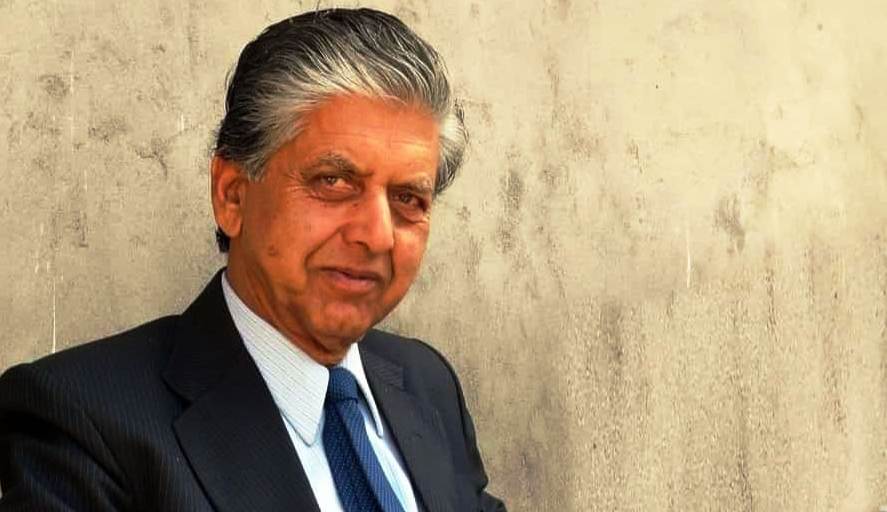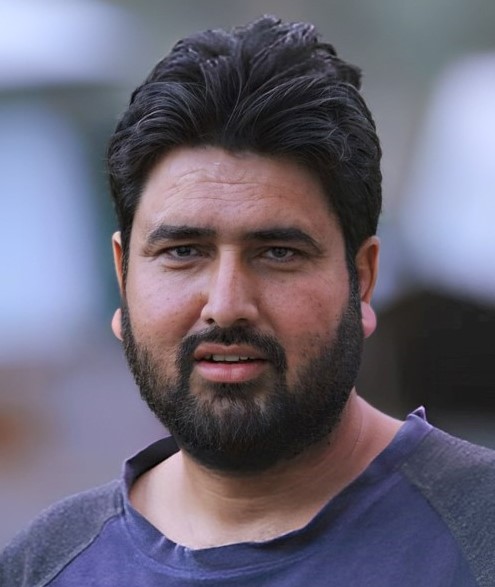by Dr Nayeem Showkat
His works demonstrate a profound grasp of anthropological and ethnographic techniques, portraying him as a skilled sociologist adept at depicting the complexities of Pahari life and language.

On January 2, 1949, Abdul Qayoom Khan was born to esteemed Kashmiri figures Raja Zabardast Khan and Shreen Jan Begum. Showing a fervent interest in writing and poetry from a young age, Khan gained renown under the pen name Nazar Boniyari.
Raised in the affluent environs of Trikanjan, Boniyar, nestled in Baramulla district’s north Kashmir, he received his initial education in his hometown. Despite the limited literary resources available, his passion for literature flourished. Even before his enrolment at Government Degree College, Baramulla, his commitment to writing was unwavering.
Nazar Boniyari pursued higher education, earning a Master’s degree in Urdu and a BEd from the University of Kashmir, setting the stage for a distinguished career in education. With no familial ties to poetry, he broke ground as the first poet and literary figure in his family. Renowned in Pahari and Urdu literature in Kashmir, his influence extends beyond labels like writer, poet, historian, or educator; he was a guiding figure for the entire Pahari community of Jammu and Kashmir.
Over four decades in the education sector, Boniyari made significant contributions, ascending through leadership roles, and leaving an enduring impact with his sharp insights. His dedication to preserving regional languages manifested in roles such as teacher trainer and active participation in the Textbook Advisory Board of the Jammu and Kashmir Board of School Education.
In addition to his educational pursuits, Boniyari played a crucial role in advancing Pahari culture and literature. His 2021 travelogue, Sharda Peeth, garnered significant international attention, adding to his extensive bibliography of nationally and internationally acclaimed works in Pahari and Urdu literature.
Boniyari’s literary talent was recognised early on with his fictional piece Dusra Adam, broadcasted on Radio Kashmir Srinagar in 1964 and later translated into Russian. Although he briefly studied the Russian language in Tashkent, familial obligations necessitated his return. His editorial contributions to various Kashmiri newspapers and publication of numerous articles in regional and national magazines further cemented his standing as a distinguished Urdu writer.
In addition to his literary endeavours, he displayed his talents as an anchor on platforms such as DD Kashir and Radio Kashmir Srinagar, solidifying his position as a prominent figure in the Pahari community. Abdul Qayoom Khan’s significant contributions have garnered numerous awards and honours, including recognition from the Jammu and Kashmir Academy of Art, Culture and Languages. Seminars and conferences across Jammu and Kashmir have delved into his life and contributions, spawning various articles, research papers, and theses.
Widely hailed as a premier exponent of modern Pahari poetry and an exceptional fiction writer, Nazar Boniyari embraced the ethos of progress and modernity. A fervent bibliophile, he treasured his extensive book collection akin to parental affection. Regrettably, a fire consumed his library, resulting in the loss of over 742 books. Undeterred, he embarked on replenishing his collection, amassing thousands more for his library.
His writings continue to inspire new poets and writers, ensuring his legacy resonates with future generations. Beyond his contributions to Pahari and Urdu poetry and literature, he also developed an interest in Communist literature and Russian history.
An often-overlooked aspect of Raja Nazar Boniyari’s life was his establishment of a pharmacy, where he provided medicines and treatments at minimal costs to the local community. This initiative not only garnered him significant recognition but also earned him the title of Doctor Sahab in his area. Despite the challenges posed by the village’s remote location, he utilised his expertise in medicines and medical sciences to offer free or low-cost services to the people of the area.
Many in Jammu and Kashmir and across the country remain unaware that the Pahari ethnic group constitutes the largest linguistic minority in the region. The history of marginalisation and othering of Paharis has deep roots in social and political deprivation. Nazar Boniyari’s writings, along with those of his contemporaries, have played a pivotal role in raising awareness about the issues, culture, arts, language, and history of the Pahari community in Jammu and Kashmir.
His works demonstrate a profound grasp of anthropological and ethnographic techniques, portraying him as a skilled sociologist adept at depicting the complexities of Pahari life and language. However, amidst the Pahari community’s celebration of their Scheduled Tribe status, the passing of an individual perceived to possess the insight for their development and empowerment is believed to have created a significant void within the Pahari community and the literary and cultural landscape of Kashmir.

Nazar Boniyari was a multifaceted individual, renowned for his mastery of wordplay. He employed puns to illuminate complex situations and contributed numerous articles infused with subtle humour and persuasive prose. A passionate traveller, he explored various countries, meticulously documenting the arts and heritage of diverse cultures, akin to a seasoned sociologist.
Raja Nazar Boniyari passed away at the age of 75 on February 20, 2024, in Mumbai, following a brief illness stemming from pneumonia and kidney ailments. He was laid to rest in Mumbai, survived by two daughters, two sisters, and a multitude of admirers who cherish his remarkable legacy.
(The author is affiliated with the Department of Convergent Journalism, Central University of Kashmir, Ganderbal. Ideas are personal)















